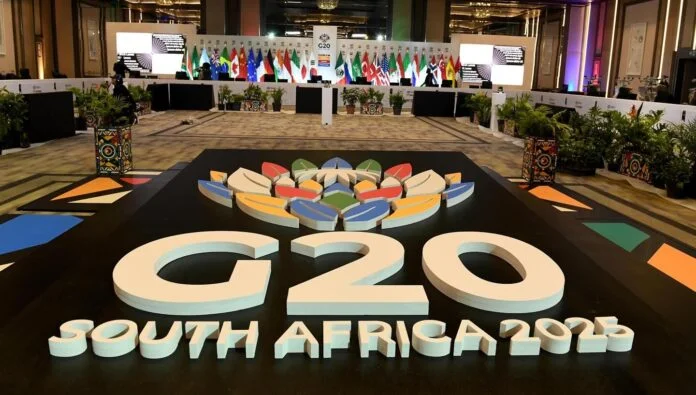With just 100 days left, and the first ever to be hosted on African soil, South Africa is putting finishing touches on preparations for the historic G20 Leaders’ Summit in Johannesburg, which will be held by November 2025.
Final Countdown to November
South Africa’s G20 presidency is reaching its peak. Out of 132 planned meetings across the Sherpa and Finance tracks, 87 have already been completed. The remaining ministerial sessions in September will shape the Johannesburg Leaders’ Declaration.
The declaration will focus on the theme: “Solidarity, Equality, and Sustainability.” This agenda is expected to guide global economic cooperation and set future development priorities.
Tackling Global Inequality
One of the main issues on the summit’s agenda is global inequality and rising sovereign debt burdens. To tackle this, President Cyril Ramaphosa has launched a G20 taskforce chaired by Nobel Prize-winning economist Joseph Stiglitz.
The taskforce will examine wealth disparities and propose practical solutions. Analysts say this step reflects South Africa’s determination to ensure the summit delivers real benefits, especially for developing nations.
Uncertainty Over U.S. Participation
A major question is whether U.S. President Donald Trump will attend the summit. This speculation comes as Trump has criticized South Africa’s land reform policies and hinted also he might send a representative instead.
Despite this, International Relations Minister Ronald Lamola confirmed that South Africa’s invitation remains open.
“We will proceed with the G20 Leaders’ Summit with or without President Trump,” Lamola stated, underlining South Africa’s commitment to hosting a successful event.
Looking Ahead
As the countdown continues, South Africa aims to use the G20 platform to showcase its leadership role. The summit will bring together world leaders, international organizations, and business stakeholders.
If successful, Johannesburg will not only mark history as the first African host of the G20 but also underline Africa’s growing influence in shaping global economic policy.
UK Investors Dominate Nigeria’s Q1 2025 Foreign Capital Inflows






















